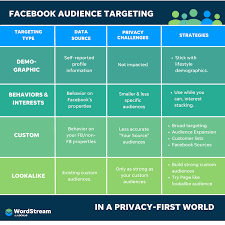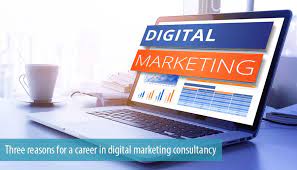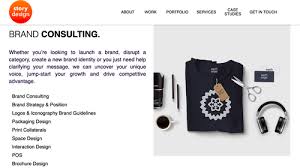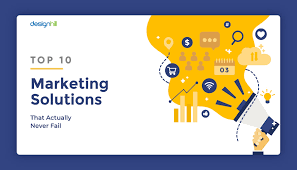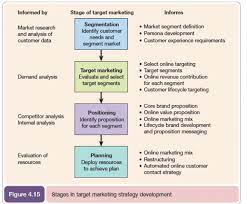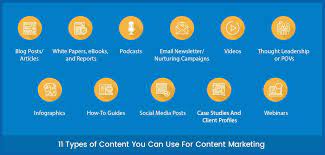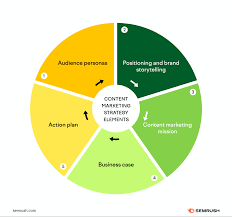The Role of a Media Agency in Today’s Digital Landscape
In today’s fast-paced and ever-evolving world, businesses face the challenge of reaching their target audience effectively amidst the vast sea of information available. This is where a media agency plays a crucial role. A media agency acts as a strategic partner, helping businesses navigate the complex world of advertising and communication to achieve their marketing objectives.
A media agency is responsible for planning, buying, and optimizing advertising space across various media channels. They work closely with clients to understand their goals, target audience, and budget constraints. Armed with this knowledge, they develop comprehensive media strategies that ensure maximum reach and impact.
One of the primary advantages of working with a media agency is their expertise in navigating the digital landscape. With the rise of online platforms and social media, traditional advertising methods alone are no longer sufficient to capture consumers’ attention. A media agency understands this shift and leverages digital channels to create effective campaigns that engage audiences in meaningful ways.
Digital advertising offers numerous opportunities for businesses to connect with their target customers. However, it also presents challenges such as ad fraud, ad blocking, and an overwhelming amount of data to analyze. A media agency helps businesses navigate these challenges by utilizing advanced tools and technologies to optimize campaigns in real-time. They monitor key metrics such as impressions, click-through rates, conversions, and return on investment (ROI) to ensure that every advertising dollar is well spent.
Furthermore, a media agency stays up-to-date with the latest trends and innovations in the industry. They have access to valuable market research data that helps them identify emerging opportunities or potential pitfalls. By staying ahead of the curve, they can provide clients with informed recommendations on how to best reach their target audience.
Another important aspect of a media agency’s role is building relationships with various media outlets. They have established connections with publishers, broadcasters, influencers, and content creators across different platforms. These relationships enable them to negotiate the best rates, secure prime ad placements, and access exclusive advertising opportunities that may not be available to businesses working independently.
Additionally, a media agency provides valuable insights and analytics to clients. They track campaign performance, analyze audience behavior, and provide detailed reports that inform future strategies. These insights help businesses make data-driven decisions and continuously refine their marketing efforts for optimal results.
In conclusion, in today’s digital landscape, a media agency is an invaluable partner for businesses seeking to maximize their advertising efforts. With their expertise in planning, buying, and optimizing media space across various channels, they help businesses cut through the noise and connect with their target audience effectively. By staying abreast of industry trends and leveraging digital platforms, a media agency ensures that businesses achieve their marketing objectives efficiently while delivering measurable results.
8 Benefits of Working with a Media Agency: Enhancing Your Campaigns with the Latest Technology, Expertise, and Strategic Planning
- Access to the latest technology and tools – Working with a media agency allows you to benefit from their access to the latest technologies, tools and resources that can help you get the most out of your campaigns.
- Expertise – Media agencies have specialist teams who are experts in their field and can provide valuable advice on how best to reach your target audience.
- Strategic planning – They are able to create strategic plans for your campaigns and ensure that all elements work together cohesively for maximum impact.
- Cost-effectiveness – By working with a media agency, you can benefit from economies of scale as they will be able to negotiate better rates from suppliers than if you were doing it yourself. This can lead to cost savings in the long run.
- Time saving – A media agency is able to take care of all aspects of your campaign, meaning that you don’t have to spend time researching or managing multiple contracts yourself, freeing up more time for other tasks within your business.
- Reach new audiences – With their knowledge of different platforms and channels, they are well placed to help you reach new audiences who may not be aware of your products or services yet but could become loyal customers in future if targeted correctly
- Data analysis – Media agencies are skilled at analysing data so they can identify trends or patterns which could indicate areas where improvements could be made or opportunities for growth exploited
- Creative ideas – As well as being analytical, media agencies also bring creative ideas which can help make campaigns stand out from the competition
Challenges with Media Agencies: Lack of Transparency, Costly Services, and Conflict of Interests
- Lack of Transparency
- Costly Services
- Conflict of Interests
Access to the Latest Technology and Tools: Maximizing Campaign Success
In today’s rapidly evolving digital landscape, staying ahead of the curve is essential for businesses aiming to achieve successful advertising campaigns. One significant advantage of working with a media agency is their access to the latest technologies, tools, and resources that can significantly enhance campaign effectiveness.
The world of advertising is constantly evolving, with new technologies emerging regularly. Keeping up with these advancements can be challenging for businesses focused on their core operations. However, media agencies specialize in staying at the forefront of industry trends and developments. By partnering with them, businesses gain access to cutting-edge tools and technologies that can give their campaigns a competitive edge.
Media agencies invest in advanced analytics platforms, ad management systems, and data-driven tools that provide valuable insights into campaign performance. These tools allow for real-time monitoring of key metrics such as impressions, click-through rates, conversions, and ROI. Armed with this data-driven intelligence, media agencies can optimize campaigns on the fly, making informed decisions to maximize results.
Furthermore, media agencies have access to sophisticated targeting tools that help businesses reach their desired audience more effectively. These tools leverage demographic data, consumer behavior patterns, and audience segmentation techniques to identify the most relevant target groups for each campaign. By utilizing such technology-driven targeting strategies, media agencies ensure that advertising messages are delivered to the right people at the right time.
Another aspect where media agencies excel is in leveraging programmatic advertising solutions. Programmatic advertising uses automated systems and algorithms to purchase ad space across various platforms in real-time. This approach allows for precise targeting based on factors such as user interests, location, or browsing behavior. Media agencies have expertise in managing programmatic campaigns efficiently and effectively utilizing these powerful tools.
Additionally, media agencies have access to exclusive partnerships with technology providers or ad networks that may not be readily available to individual businesses. These partnerships enable them to tap into unique resources or gain early access to beta testing for new advertising platforms or features. By leveraging these privileged connections, media agencies can help businesses stay ahead of their competition and explore innovative advertising opportunities.
In conclusion, working with a media agency provides businesses with access to the latest technologies, tools, and resources that can significantly enhance the success of their advertising campaigns. These agencies invest in advanced analytics platforms, targeting tools, and programmatic advertising solutions to optimize campaign performance. By leveraging their expertise and access to cutting-edge technology, businesses can maximize their advertising efforts, reach their target audience more effectively, and achieve measurable results in an ever-evolving digital landscape.
Expertise – Unlocking the Power of Media Agencies
In today’s fast-paced and competitive business landscape, reaching your target audience effectively is paramount. This is where the expertise of a media agency proves invaluable. With specialist teams who are experts in their field, media agencies offer valuable advice on how best to connect with your desired audience.
Media agencies understand the intricacies of different advertising channels and platforms. They stay up-to-date with the latest trends, consumer behavior, and industry insights. This knowledge allows them to develop strategic plans tailored to your business objectives and target market.
By partnering with a media agency, you gain access to a wealth of expertise that can make a significant difference in your marketing efforts. These professionals have a deep understanding of various advertising methods, whether it’s traditional media such as television, radio, or print, or digital platforms like social media, search engine marketing, or programmatic advertising.
Their experience enables them to identify the most effective channels for your specific brand and target audience. They can advise on which platforms will generate the highest engagement and deliver the best return on investment (ROI). This level of expertise helps businesses allocate their advertising budget wisely and avoid wasting resources on ineffective strategies.
Media agencies also possess valuable insights into consumer behavior and preferences. They analyze data to understand how audiences interact with different media channels and content types. This knowledge allows them to craft targeted campaigns that resonate with your audience’s interests and motivations.
Furthermore, media agencies have access to advanced tools and technologies that provide in-depth analytics. By monitoring key performance indicators (KPIs) such as impressions, click-through rates, conversions, and customer engagement metrics, they can evaluate campaign effectiveness in real-time. This data-driven approach enables them to optimize strategies continuously for maximum impact.
The expertise offered by media agencies extends beyond just planning and executing campaigns. They can provide guidance on creative messaging, branding strategies, market positioning, and even help navigate potential challenges such as crisis management or reputation issues.
In a rapidly evolving media landscape, having a team of specialists by your side can give you a competitive edge. Media agencies invest in ongoing training and development to ensure their teams stay ahead of industry trends and digital advancements. This commitment to expertise ensures that you receive the most up-to-date advice and recommendations for your marketing initiatives.
In conclusion, partnering with a media agency grants businesses access to a wealth of expertise that can significantly enhance their marketing efforts. By leveraging the knowledge and skills of specialist teams, businesses can make informed decisions on how best to reach their target audience. From identifying the most effective channels to crafting compelling campaigns, media agencies provide invaluable guidance that helps businesses achieve their marketing goals efficiently and effectively.
Strategic planning – They are able to create strategic plans for your campaigns and ensure that all elements work together cohesively for maximum impact.
Strategic Planning: Unlocking Maximum Impact with a Media Agency
In the dynamic world of advertising and communication, strategic planning is key to achieving maximum impact. This is where a media agency truly shines. With their expertise and experience, they can create comprehensive strategic plans for your campaigns, ensuring that all elements work together cohesively to deliver outstanding results.
A media agency understands that successful campaigns are not just about throwing random advertisements into the market. Instead, they take a meticulous approach to crafting strategies that align with your business goals and resonate with your target audience.
When it comes to strategic planning, a media agency begins by gaining a deep understanding of your brand, objectives, and target market. They conduct thorough research and analysis to identify the most effective channels and tactics for reaching your audience. By leveraging their industry knowledge and insights, they can develop tailored strategies that maximize impact.
One of the advantages of working with a media agency is their ability to see the bigger picture. They consider various factors such as market trends, consumer behavior, competitor analysis, and budget constraints when creating strategic plans. This holistic approach ensures that every element of your campaign works harmoniously towards achieving your desired outcomes.
A media agency also excels in identifying opportunities for synergy across different channels and platforms. They understand how each medium can complement one another to create a cohesive brand message. By integrating various touchpoints such as television, radio, print, digital advertising, social media, and more, they ensure that your campaign delivers a consistent brand experience across all platforms.
Furthermore, a media agency’s strategic planning extends beyond just selecting the right channels. They also focus on optimizing campaign timing to maximize impact. By carefully considering factors such as seasonality, market trends, and consumer behavior patterns, they ensure that your message reaches your audience at the most opportune moments.
With their expertise in data analysis and performance tracking tools, a media agency continuously monitors campaign progress against key metrics. This allows them to make data-driven decisions and refine strategies as needed. By closely evaluating campaign performance, they can identify areas of improvement and capitalize on successful tactics, ultimately enhancing the overall impact of your campaigns.
In conclusion, strategic planning is a crucial pro of working with a media agency. Their ability to create comprehensive plans that align with your objectives and target audience ensures that every element of your campaign works together cohesively for maximum impact. By leveraging their industry knowledge, insights, and data analysis capabilities, they help you navigate the complex advertising landscape and achieve outstanding results. So, if you’re looking to unlock the full potential of your marketing efforts, partnering with a media agency can be a game-changer for your business.
The Cost-Effectiveness of Working with a Media Agency
In today’s competitive business landscape, cost-effectiveness is a key consideration for any marketing strategy. One significant advantage of working with a media agency is the ability to achieve cost savings in the long run.
One of the primary reasons why media agencies can offer cost-effective solutions is due to their ability to leverage economies of scale. By working with multiple clients and handling a significant volume of advertising placements, media agencies are in a stronger position to negotiate better rates from suppliers than if businesses were to approach them individually. This means that by partnering with a media agency, businesses can access more competitive pricing for their advertising campaigns.
Media agencies have established relationships with various media outlets, including publishers, broadcasters, and digital platforms. These relationships allow them to secure preferential rates and exclusive advertising opportunities that might not be accessible to individual businesses. By tapping into these networks, businesses can benefit from the buying power and expertise of the media agency, ultimately leading to significant cost savings.
Moreover, media agencies possess extensive industry knowledge and insights into market trends. They understand which channels are most effective for reaching specific target audiences and can advise businesses on where to allocate their advertising budget for maximum impact. By leveraging this expertise, businesses can avoid wasting resources on ineffective advertising channels and focus their investments on strategies that yield the best results.
Additionally, working with a media agency eliminates the need for businesses to invest in costly in-house resources or hire specialized personnel solely dedicated to managing advertising campaigns. Media agencies have teams of professionals who are well-versed in planning, executing, and optimizing campaigns across various channels. This not only saves costs associated with recruitment but also ensures that campaigns are handled by experts who have experience in delivering successful results.
Furthermore, media agencies employ sophisticated tools and technologies that enable them to track campaign performance accurately. By monitoring key metrics such as impressions, click-through rates, conversions, and ROI in real-time, they can optimize campaigns to achieve the best possible outcomes. This data-driven approach ensures that advertising budgets are allocated efficiently, maximizing the return on investment.
In conclusion, the cost-effectiveness of working with a media agency lies in their ability to leverage economies of scale, negotiate better rates from suppliers, and provide expert guidance on allocating advertising budgets. By partnering with a media agency, businesses can access competitive pricing, exclusive opportunities, and industry insights that lead to significant cost savings in the long run. Moreover, businesses can benefit from the expertise of professionals who possess the knowledge and tools necessary to optimize campaigns for optimal results.
Time Saving: The Benefits of Partnering with a Media Agency
Running a successful business requires careful time management and efficient allocation of resources. This is where partnering with a media agency can be a game-changer. One significant advantage of working with a media agency is the time-saving aspect it offers.
When it comes to advertising and marketing campaigns, there are numerous tasks involved, from research and planning to execution and analysis. A media agency takes care of all these aspects, allowing you to focus on other critical tasks within your business.
One of the biggest time-consuming activities in advertising is research. Identifying the right target audience, understanding their preferences, and finding the most effective media channels can be overwhelming. However, by collaborating with a media agency, you can rely on their expertise and knowledge in the field. They have access to extensive market research data and insights that help them identify the most suitable platforms for your campaign.
Moreover, managing multiple contracts with various media outlets can be a complex process. Negotiating rates, coordinating schedules, and ensuring timely delivery of advertisements require significant effort and attention to detail. By entrusting these tasks to a media agency, you save valuable time that would otherwise be spent on contract management.
A media agency acts as a single point of contact for all your advertising needs. They handle negotiations with publishers, broadcasters, influencers, and other partners on your behalf. This streamlines the process and eliminates the need for you to juggle multiple contracts or coordinate various advertising placements yourself.
Furthermore, managing an advertising campaign requires constant monitoring and optimization to ensure its effectiveness. A media agency has dedicated teams that continuously analyze campaign performance, make data-driven adjustments, and provide detailed reports on progress. By entrusting this responsibility to them, you save precious time that can be redirected towards core business activities.
By partnering with a media agency for your advertising needs, you benefit from their expertise in navigating the ever-changing landscape of marketing channels. They stay up-to-date with the latest trends, technologies, and platforms, ensuring that your campaigns are relevant and impactful.
In conclusion, working with a media agency offers significant time-saving advantages. By allowing them to handle all aspects of your campaign, from research and planning to contract management and optimization, you can focus on other essential tasks within your business. Their expertise, industry knowledge, and established relationships with media outlets ensure that your advertising efforts are efficient and effective. Ultimately, partnering with a media agency frees up valuable time for you to concentrate on growing your business and achieving your goals.
One of the key advantages of working with a media agency is their ability to help businesses reach new audiences. With their extensive knowledge of various platforms and channels, media agencies are well-equipped to identify and target potential customers who may not yet be aware of a business’s products or services.
In today’s saturated market, it is essential for businesses to expand their reach beyond their existing customer base. By tapping into new audiences, businesses have the opportunity to increase brand awareness, generate leads, and ultimately convert these new prospects into loyal customers.
Media agencies understand the nuances of different platforms such as social media, search engines, online publications, television, radio, and more. They know which channels are most effective for reaching specific target demographics and can tailor strategies accordingly.
Through strategic planning and precise targeting, media agencies can help businesses connect with individuals who align with their ideal customer profile. By identifying key characteristics such as age, gender, location, interests, and behaviours, media agencies can ensure that the right message is delivered to the right people at the right time.
Furthermore, media agencies possess valuable insights into consumer behaviour and market trends. They stay up-to-date with industry research and data analysis to identify emerging opportunities and shifts in consumer preferences. This enables them to craft compelling campaigns that resonate with new audiences and drive engagement.
By leveraging their expertise in audience targeting and platform selection, media agencies can help businesses expand their reach beyond traditional marketing efforts. Whether it’s through targeted social media campaigns or strategic placements on popular websites or influencers’ channels, they have the tools and knowledge to effectively capture the attention of potential customers who may have otherwise been overlooked.
Reaching new audiences is a vital step towards business growth. Media agencies not only have the expertise to identify untapped markets but also possess the skills to create impactful campaigns that engage these audiences. By targeting them correctly with compelling messaging tailored to their needs and interests, businesses can build brand awareness among potential customers who may become loyal advocates in the future.
In conclusion, partnering with a media agency offers businesses the opportunity to expand their reach and connect with new audiences. With their knowledge of different platforms and channels, media agencies can effectively target individuals who may not be aware of a business’s products or services yet. By reaching these new audiences and engaging them with compelling campaigns, businesses can foster brand loyalty and drive long-term success.
Data Analysis: Unleashing the Power of Insights with Media Agencies
In today’s data-driven world, businesses are constantly seeking ways to gain a competitive edge. One significant advantage that media agencies bring to the table is their expertise in data analysis. By delving into the vast amounts of information available, media agencies have the ability to identify trends, patterns, and valuable insights that can drive business growth and success.
Media agencies possess a wealth of experience in handling and interpreting data from various sources. They understand how to extract meaningful information from complex datasets and transform it into actionable strategies. This skill allows them to uncover hidden opportunities or areas where improvements can be made.
By analysing data, media agencies can identify trends that may not be immediately apparent. They can pinpoint shifts in consumer behaviour, preferences, or market dynamics that could impact a business’s advertising strategy. Armed with this knowledge, they can adapt campaigns accordingly and ensure that marketing efforts are aligned with current trends.
Furthermore, data analysis enables media agencies to optimize advertising campaigns in real-time. By closely monitoring key metrics such as impressions, click-through rates, conversions, and ROI, they can make informed decisions on how to allocate resources effectively. This agile approach ensures that marketing budgets are maximized for optimal results.
Another valuable aspect of data analysis is its ability to uncover audience insights. Media agencies dig deep into demographic information, consumer profiles, and behavioural patterns to understand who their client’s target audience truly is. This knowledge allows them to tailor messaging and creative elements specifically to resonate with the intended audience.
Moreover, through data analysis, media agencies can measure the effectiveness of different marketing channels or platforms. They assess which channels generate the highest engagement or deliver the best return on investment for their clients. By identifying successful channels and eliminating underperforming ones, they help businesses allocate their resources wisely and achieve greater efficiency in their advertising efforts.
Media agencies also utilize data analysis to evaluate campaign performance over time. They track key performance indicators and generate comprehensive reports that highlight successes, challenges, and areas for improvement. These insights enable businesses to refine their strategies and make data-driven decisions for future campaigns.
In summary, data analysis is a powerful tool in the arsenal of media agencies. Their ability to analyse and interpret large volumes of data allows them to uncover trends, identify growth opportunities, and make informed decisions. By harnessing the power of data, media agencies help businesses optimize their advertising efforts, target their audience effectively, and achieve measurable results. With their expertise in data analysis, media agencies are well-equipped to guide businesses towards success in today’s data-driven landscape.
Creative Ideas: The Secret Weapon of Media Agencies
In the competitive world of advertising, standing out from the crowd is essential for success. While data analysis and strategic planning are crucial aspects of media agencies’ work, their true secret weapon lies in their ability to generate creative ideas that make campaigns shine.
Media agencies understand that capturing the attention of consumers requires more than just placing ads in the right channels. It requires a spark of creativity that ignites curiosity and resonates with the target audience. By bringing fresh perspectives and innovative thinking to the table, media agencies can help businesses create campaigns that leave a lasting impression.
The creative ideas generated by media agencies go beyond just catchy slogans or eye-catching visuals. They delve deep into understanding the brand’s identity, target audience, and market trends. Armed with this knowledge, media agencies can craft unique concepts that align with the brand’s values and objectives while resonating with consumers.
These creative ideas have the power to transform ordinary campaigns into extraordinary experiences. Whether it’s a thought-provoking video advertisement, an interactive social media campaign, or an immersive brand activation event, media agencies have the expertise to bring these ideas to life.
Moreover, media agencies understand that creativity is not limited to traditional advertising channels. In today’s digital age, they explore new platforms and mediums to engage audiences in innovative ways. From viral social media challenges to interactive augmented reality experiences, media agencies are always on the lookout for emerging trends and technologies that can enhance their creative strategies.
By infusing creativity into campaigns, media agencies help businesses differentiate themselves from competitors. They know how to capture attention in a cluttered advertising landscape by breaking through monotony and delivering messages in unexpected ways. Creative ideas inject personality into brands and forge emotional connections with consumers – ultimately driving brand loyalty and customer engagement.
Furthermore, creative ideas from media agencies are not just limited to one-off campaigns; they can also contribute to long-term brand building. By developing consistent and memorable brand narratives, media agencies help businesses establish a unique identity that resonates with their target audience over time. These ideas can be woven into various touchpoints, from advertisements to content marketing, creating a cohesive and impactful brand experience.
In conclusion, the ability to generate creative ideas is one of the key strengths of media agencies. By combining analytical thinking with innovative approaches, they help businesses stand out from the competition and capture consumers’ attention. These creative ideas infuse campaigns with personality, emotion, and relevance – making them memorable and effective. So, if you’re looking to elevate your advertising efforts to new heights, partnering with a media agency that brings creative firepower is undoubtedly a wise choice.
Lack of Transparency
The Lack of Transparency in Media Agencies: Rebuilding Trust and Confidence
In recent years, the lack of transparency within media agencies has become a pressing concern for businesses seeking to partner with them. This issue has raised questions about the integrity and credibility of these agencies, leading to a loss of trust and confidence among clients.
One of the key areas where transparency is often lacking is in the financial dealings between media agencies and their clients. There have been instances where agencies have not been fully transparent about how they allocate advertising budgets or disclose the commissions they receive from media vendors. This lack of clarity can create a sense of unease for clients, as they are left unsure about how their advertising spend is being utilized.
Another aspect where transparency is essential is in the measurement and reporting of campaign performance. Clients rely on accurate data and insights to evaluate the effectiveness of their advertising efforts. However, some media agencies have been criticized for providing incomplete or misleading reports that do not provide a comprehensive picture of campaign performance. This lack of transparency can hinder clients’ ability to make informed decisions and optimize their marketing strategies.
Furthermore, conflicts of interest can arise when media agencies have undisclosed relationships with certain media vendors or platforms. This can lead to biased recommendations or placements that may not be in the best interest of the client but rather benefit the agency’s own interests. Such practices erode trust and compromise the objectivity that clients expect from their media agency partners.
To address these concerns, industry leaders are calling for greater transparency within media agencies. Clients should demand clear and detailed breakdowns of how their advertising budgets are being allocated, including any commissions received by the agency. Additionally, regular and comprehensive reporting should be provided to enable clients to assess campaign performance accurately.
Media agencies themselves must take proactive steps to rebuild trust with their clients. This includes adopting transparent business practices, implementing robust internal controls, and being open about any potential conflicts of interest. By prioritizing transparency, agencies can demonstrate their commitment to ethical conduct and client satisfaction.
Industry associations and regulatory bodies also play a vital role in promoting transparency within the media agency landscape. They can establish guidelines and standards that agencies must adhere to, ensuring that transparency becomes an industry-wide norm rather than an exception.
In conclusion, the lack of transparency within media agencies has been a significant concern for businesses seeking their services. However, by demanding greater transparency, implementing best practices, and fostering a culture of openness and accountability, media agencies can rebuild trust and confidence with their clients. Transparency is not only crucial for maintaining healthy client relationships but also for the long-term sustainability and credibility of the industry as a whole.
Costly Services
One of the downsides of working with a media agency is the potential cost involved. Media agencies often offer a wide range of services, from strategic planning to campaign execution and analysis. However, these comprehensive services come at a price, which may pose a challenge for small businesses with limited budgets.
For small businesses that are just starting or have tight financial constraints, the cost of hiring a media agency can be prohibitive. The fees charged by media agencies can vary depending on factors such as the scope of work, campaign duration, and the level of expertise required. This means that some businesses may find it difficult to afford the full range of services offered by larger agencies.
The cost factor can limit access to specialized resources and expertise that could potentially benefit a business’s marketing efforts. Smaller businesses may have to make tough decisions about which services they can afford and prioritize accordingly. This limitation could result in missed opportunities or less effective campaigns due to a lack of resources or expertise.
However, it’s important to note that not all media agencies are out of reach for small businesses. Some agencies offer more flexible pricing options or tailored packages specifically designed for smaller budgets. It’s worth exploring different agency options and discussing budget constraints upfront to find an agency that aligns with both financial limitations and marketing objectives.
Alternatively, small businesses can consider alternative approaches such as hiring freelancers or utilizing in-house resources for certain aspects of their media planning and execution. While this may require more effort in terms of coordination and management, it can help mitigate the high costs associated with hiring a full-service media agency.
Ultimately, while cost is indeed a con when it comes to media agency services, it’s important for businesses to carefully evaluate their specific needs and budgetary constraints before making a decision. By conducting thorough research and exploring different options, businesses can find ways to leverage media agency services within their financial means without compromising on quality or effectiveness.
Conflict of Interests
Conflict of Interests: A Challenge Faced by Media Agencies
In the dynamic world of media agencies, a significant challenge that often arises is the potential for conflicts of interest. Media agencies work with a diverse range of clients, each with their own unique goals and target audiences. However, this diversity can sometimes lead to conflicts when it comes to selecting the best media channels or strategies for a particular campaign.
One of the primary reasons conflicts of interest occur is due to the nature of media agency business models. These agencies typically earn revenue through commissions or discounts they receive from media outlets based on the amount of advertising space they purchase. While this model allows media agencies to offer their services at competitive rates, it can also create situations where their recommendations may not be entirely impartial.
When working with multiple clients simultaneously, media agencies must balance their responsibilities and ensure fair treatment for all. However, conflicts can arise when two or more clients operate within the same industry or target similar demographics. In such cases, there may be pressure on the agency to favor one client over another when recommending media channels or strategies.
Another potential conflict occurs when a media agency has its own affiliated entities or partnerships. These affiliations may include ownership stakes in certain media outlets or relationships with specific publishers. While these partnerships can provide unique opportunities and exclusive access to advertising space, they may also influence the agency’s recommendations and limit objectivity in selecting the most suitable channels for a campaign.
To address these challenges, media agencies must establish robust internal processes and ethical guidelines that prioritize their clients’ interests above all else. Transparency is key in ensuring open communication with clients about any potential conflicts that may arise during campaign planning and execution.
Furthermore, clear communication between clients and agencies is essential for building trust and mitigating conflicts of interest. Clients should feel comfortable discussing any concerns they have about potential biases or preferential treatment based on competing interests. Open dialogue allows both parties to align their expectations and work towards finding the best solutions for each client’s unique needs.
It is also important for media agencies to regularly evaluate their relationships and partnerships to ensure they remain aligned with their clients’ best interests. This includes periodically reviewing affiliations and partnerships to determine if they are still relevant and beneficial for all parties involved.
In conclusion, conflicts of interest can pose a challenge for media agencies. However, by implementing transparent communication, ethical guidelines, and regular evaluation of partnerships, media agencies can navigate these challenges and maintain the trust of their clients. Ultimately, prioritizing the clients’ best interests is crucial in ensuring that media agencies provide unbiased recommendations and strategies that deliver optimal results.



